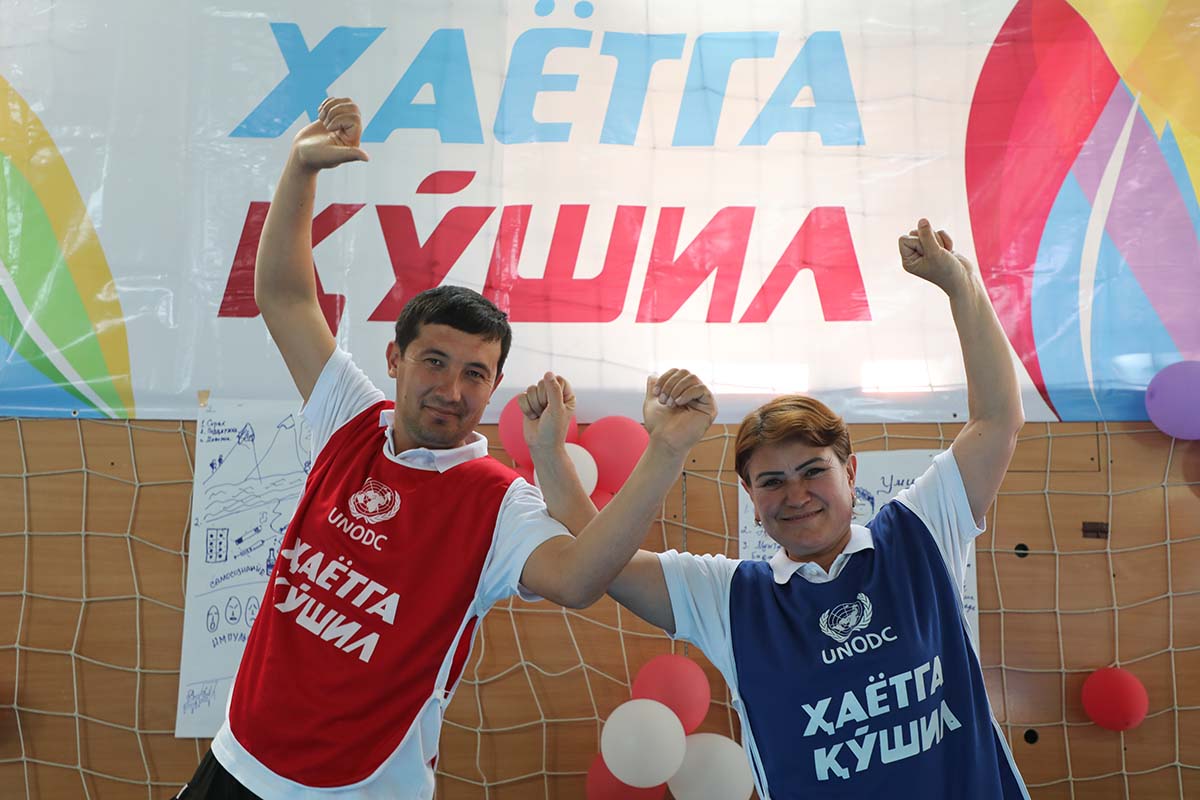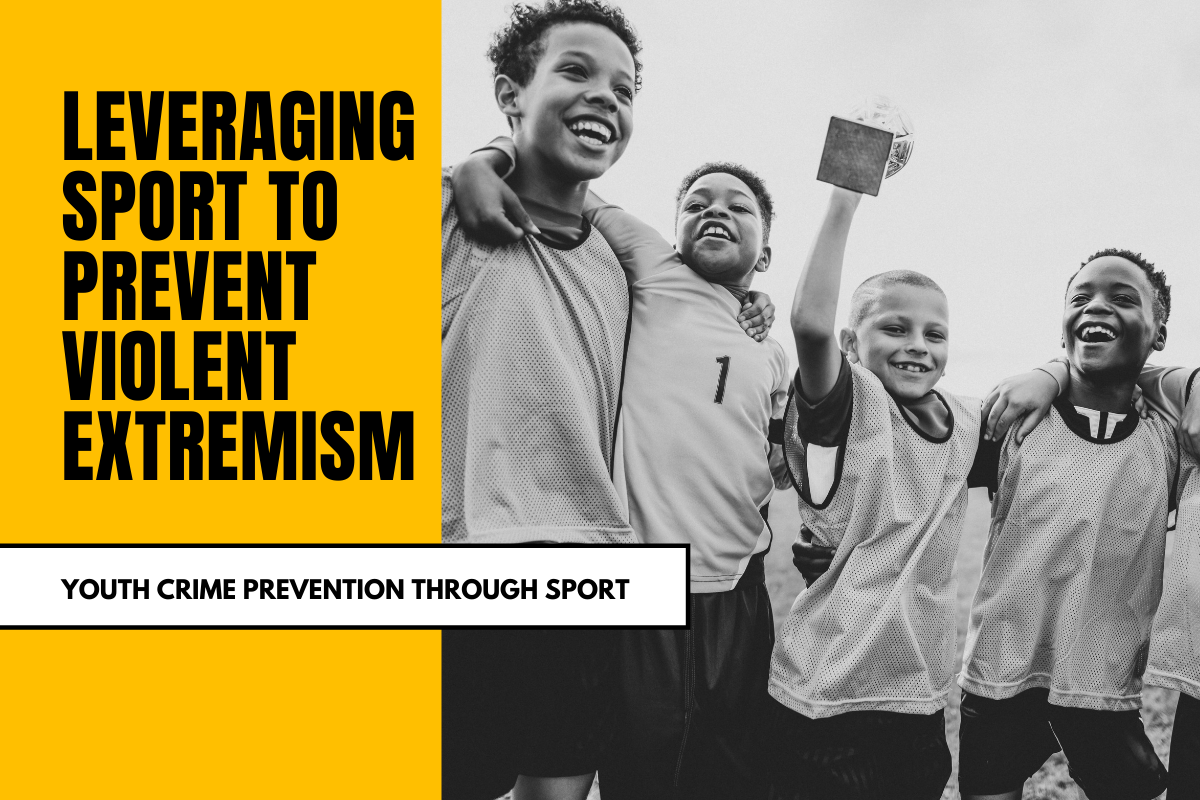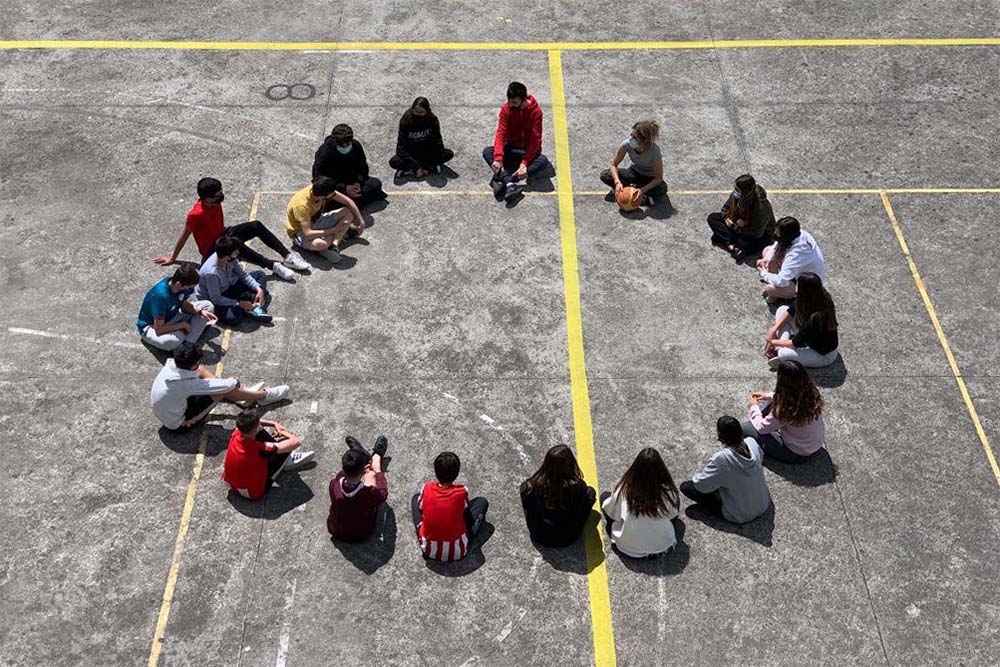Leaving no one behind: Strengthening youth resilience during and after the pandemic in Tajikistan
07 January 2021 – Across the world, the COVID-19 pandemic, and the measures implemented to contain the virus, have changed all aspects of our daily lives. The closure of schools and education institutions; the shutting of businesses and the loss of employment; the social distancing measures and self-isolation – these, and more, have had has vast consequences on all members of society, including those children and their families who were already living in precarious situations. Indeed, socio-economic divides visible prior to the pandemic have been made even more apparent over the past year: in the era of distance learning and digital education, for example, the lack of access to the internet and digital devices has made the education gap even more apparent, while limited education and employment opportunities, mental health challenges (such as increased anxiety and stress), and risks for online exploitation and abuse are just some of the issues faced by young people.
Within this context, UNODC has been working in Tajikistan to help young people better cope with these new realities in a bid to tackle the potentially negative longer-term impact on social and behavioural development in youth. Over the past couple of months, a series of training events for teachers, parents and youth around the office’s Line Up Live Up curriculum, as well as a youth contest concerning the ‘Choose Sport’ campaign, have both been rolled out to promote an understanding of the benefits of sport in building life skills and pro-social behaviour, engaging over 500 young persons, teachers and parents in total.
This outreach – developed in partnership with the Tajik Ministry of Education and Science, the Committee of Youth Affairs and Sports, and the Office of the Mayor of Dushanbe – has included workshops and information session on online safety rules to prevent victimization and exploitation of young people; on effective communication; and on sport and life skills training sessions, with more than 200 individuals from 20 secondary schools and five universities engaged in this specific area since early-November.
To ensure that parents and teachers have a central role in children’s positive upbringing at this crucial time, the workshops for these adults focused on building healthy relationships with children. This offered a precursor to the Line Up Live Up sessions, with parents and teachers able to actively participate with their children on a more informed level during this stage of the outreach. Reflecting on this, Mahbuba Azimova, a mother and teacher from Dushanbe, expressed her gratitude for the sessions: “During the pandemic, we have been communicating with our children more than ever, but through this workshop we have learned the basic steps to make this interaction more efficient and effective. We are reminded as to how healthy relationships can support children for a long-lasting life.” 17-year-old Abdurakhmon Fozilov meanwhile shared his thoughts, highlighting the positive outcomes of the internet safety sessions: “I learned how to safely be online and realized that my security and safety is also dependent on me.”
Another approach used to engage youth in this process was through art. Thanks to a drawing and essay contest held from mid-November to late-December, almost 300 young people aged 13 to 20 from across Tajikistan were able to illustrate how sport can help them better cope with stress during the pandemic. During an awards ceremony which took place after the contest concluded, the representative of the Committee of Youth Affairs and Sports, Abdullo Mahmadalizoda, highlighted the contest’s role in “supporting and promoting the creativity and artistic thinking among children and youth, and promoting their self-expression and build confidence.” He also noted that “promoting sport among youth through drawing is a great way of staying socially connected while keeping physically distant.”
Complementing the Line Up Live Up youth/parent/teacher training and the art contest, a roundtable discussion on the use of sport to counter youth violence and promote crime prevention in Tajikistan took place in December. Bringing together over 20 representatives from the Government, civil society and the UN, as well as trainers, school managers and teachers involved in piloting Line Up Live Up in secondary schools across the country, the discussion looked at the impact of sport and the need to invest and constantly engage young people in positive ways. The sustainability and scaling up of Line Up Live Up within Tajikistan were also explored, with the representative of the Ministry of Education and Science, Jaloliddin Amirov, emphasizing the importance of continuing the initiative and noting that the integration of the training programme into secondary schools will be explored.
Summing up the outreach in the country through these various initiatives, Takhmina Rakhimova, National Project Coordinator at UNODC Tajikistan, indicated how, in these unprecedent times, it is important for youth to build new forms of engagement in order to stay connected and engaged mentally and physically. “We wish for our youth participants to act as Ambassadors in their school communities and share the acquired knowledge and skills with their peers on how sports can be used as a tool for personal development, mitigating the impact of pandemic, improving the health and well-being of young people,” she noted. “We encourage the youth to act like today’s champions.”
Additional information:


